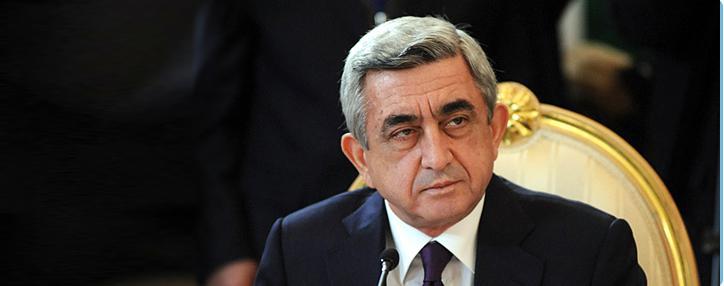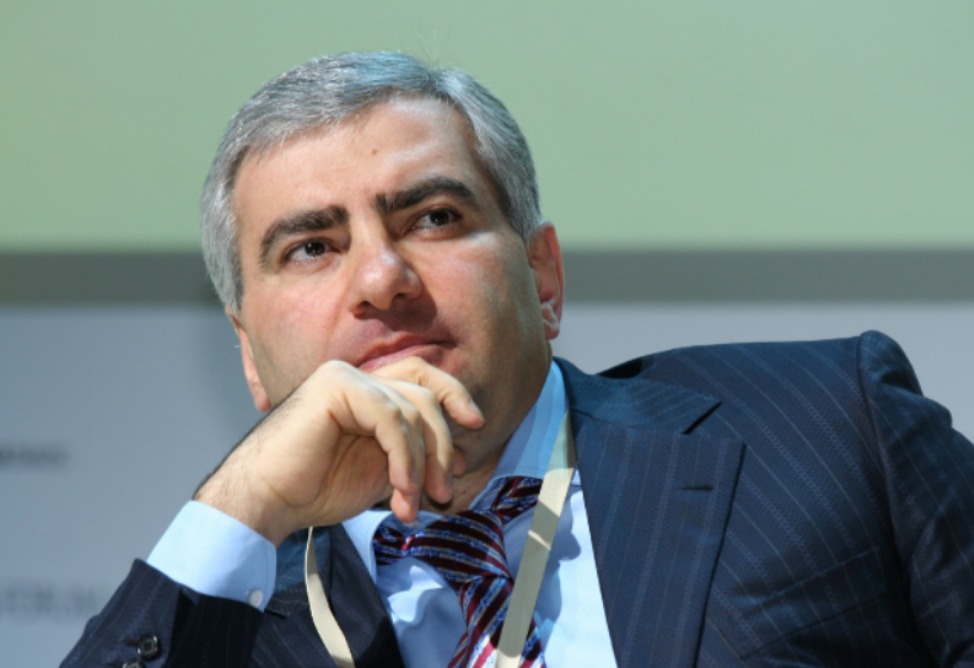Armenian forces would deliver a disproportionate blow should Azerbaijan engage in military conflict: President Sargsyan says
09.11.2012,
16:00
Armenia's president Serzh Sargsyan is increasingly concerned about what he sees as neighboring Azerbaijan's willingness to engage in armed conflict over Nagorno-Karabakh, he said in an interview with The Wall Street Journal, warning that Armenian forces would deliver a disproportionate blow should conflict erupt between the neighbors.

YEREVAN, November 9. / ARKA /. Armenia's president Serzh Sargsyan is increasingly concerned about what he sees as neighboring Azerbaijan's willingness to engage in armed conflict over Nagorno-Karabakh, he said in an interview with The Wall Street Journal, warning that Armenian forces would deliver a disproportionate blow should conflict erupt between the neighbors.
Serzh Sargsyan said Armenia's government would continue to push for a negotiated settlement to the conflict over Nagorno-Karabakh, which has simmered for nearly two decades since the collapse of the Soviet Union. But he also tapped the rising tensions in one of the world's key energy corridors.
"Unfortunately, I believe Azerbaijan is waiting for an occasion to start a conflict," President Sargsyan said Thursday. "I am confident such a mistake would harm the people of Nagorno-Karabakh and Armenia but that most harm would come to the people of Azerbaijan….We won't stand aside when the population of Nagorno-Karabakh is going to be destroyed."
In comments on growing xenophobic atmosphere and hatred against Armenians in Azerbaijan President Sargsyan said ‘It is easier to create such an atmosphere, to encourage hate speech, rather than deal with the consequences of that atmosphere and turn the tide back."
President Sargsyan also warned that the prospect of a military strike against Iran, with which Armenia shares a border, was an issue of "extreme concern" which could set off a sequence of events that could also trigger a conflict between Yerevan and Baku.
He said deeper international engagement in the region was vital to help reduce tensions between Azerbaijan and Armenia. "If we had been living in an isolated region where there was no international impact, war would have already begun," he said.
The conflict in Nagorno-Karabakh broke out in 1988 after the predominantly Armenian-populated enclave declared about secession from Azerbaijan as it declared its independence from the Soviet Union and removed the powers held by the enclave's government. The Armenian majority voted in 1991, December 10, to secede from Azerbaijan and in the process proclaimed the enclave the Republic of Nagorno-Karabakh.
Full-scale fighting, initiated by Azerbaijan, erupted in the late winter of 1992. International mediation by several groups including Europe's OSCE’s failed to bring an end resolution that both sides could work with. In the spring of 1993, Armenian forces captured regions outside the enclave itself. By the end of the war in 1994, the Armenians were in full control of most of the enclave and also held and currently control seven regions beyond the administrative borders of Nagorno-Karabakh.
Almost 1 million people on both sides have been displaced as a result of the conflict. A Russian- -brokered ceasefire was signed in May 1994 and peace talks, mediated by the OSCE Minsk Group, have been held ever since by Armenia and Azerbaijan. -0-



